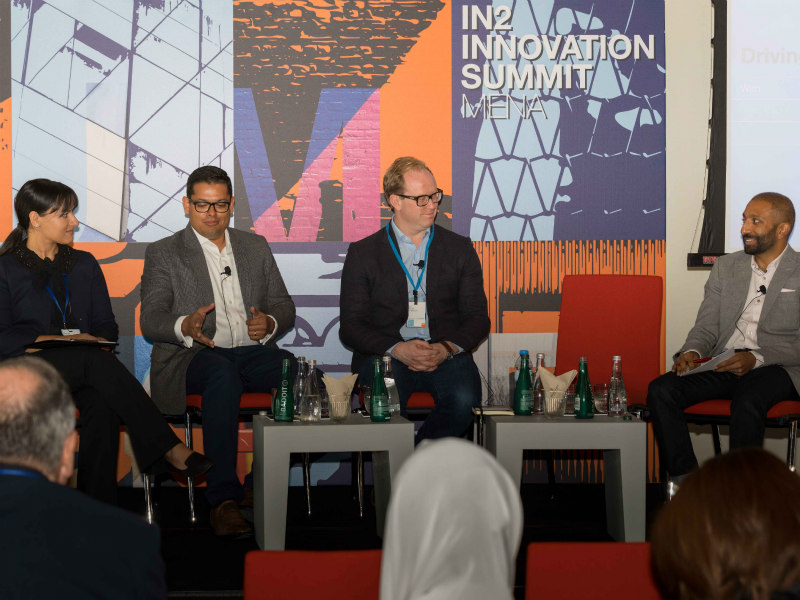Paul Holmes 21 Feb 2018 // 11:01AM GMT

DUBAI—Public relations is well positioned to drive innovation in organizations, Donya Abdulhadi, director of strategy for Weber Shandwick MENA, told the inaugural In2Summit MENA in Dubai this afternoon. According to Abdulhadi, who comes from an advertising background, “Public relations has the ability to take ideas tangibly to market.”
Abdulhadi was speaking at a session on “Driving Innovation Through Leadership,” moderated by The Holmes Report's Arun Sudhaman, with a focus on creating a culture of innovation. “Innovation is creativity and implementation,” she told the audience. “Often times we focus on creativity and thinking outside the box and underestimate the implementation and execution.”
Creating a culture of innovation, she said, depends upon “the freedom we give to people. As leaders we think that the more directives we get, the more we are leading. That’s not necessarily the case. As strategists we have to be comfortable with the idea of being behind the creative ideas. The word behind is very important. That sets a tone: be useful, not clever.”
Ben Wood, Facebook’s director of agencies, EMEA, began his contribution to the panel by discussing the difference between innovation and disruption: “We talk about innovation and innovation is great, but innovation is about doing something better. Disruption is different, it’s about taking something and doing something completely different. Airbnb didn’t improve the hotel business, it gave people new places to stay.”
He also discussed the way in which the agency world is being disrupted, “The agencies we work with are seeing their business disrupted by new channels and new services and new competitors. The best agencies are those that are dealing with that and embracing that. I think we have got to a point in the agency business where even the big conglomerates are going to have to start to think differently about how they disrupt their own businesses.”
He quoted a lesson he learned on the agency side of the business: “If you’re not a start-up you have to be a turnaround.”
Wood said agencies could learn from how Facebook engineers innovate. He cited Facebook’s “clear mission” of uniting the world, and the company’s values—be bold, focus on impact, and more. Emphasizing those things, he said, “establishes a clear mission, and clear vision, and then sets our engineers free to innovate. You have all of the people working to one ambition without structure and hierarchy. These agile teams go away and build in accordance with our values.”
Reuven Proenca, director of corporate and marketing communications, EMEA, for First Solar, said that innovative cultures “embrace failure, they don’t punish it.” He cited organizations that throw parties to celebrate their failures—understanding that failures are an inevitable consequence of willingness to take risk.
“I am also a believe in purpose-driven innovation. I feel we are at an inflection point in terms of companies focusing on purpose. I work for a company devoted to technology that addresses one of the most important issues we face: climate change. Innovation backed by purpose is more meaningful, more fulfilling purpose provides a greater urgency to innovation.”
Wood, meanwhile, emphasized the importance of data in empowering innovation. “Data allows us to understand what’s working, what resonates with our customer base, so much faster, and so we can fail faster.”
And Proenca stressed the importance of showcasing innovation, internally and externally. “I think the bigger the company, the more important is to celebrate innovation, so people are inspired.”


































.jpg)

















